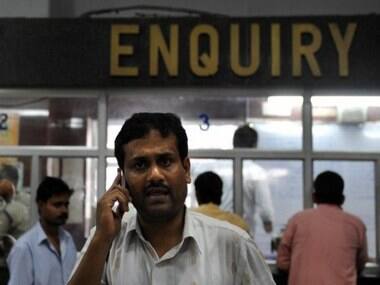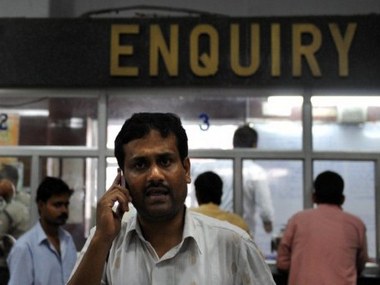By Gaurav Jain
There are few things more irritating than a phone call from an unknown number while you are in a meeting. I disconnect and try to focus on the conversation at hand, yet it rings again; I disconnect again. The third time it buzzes I have visions of a friend or loved one in trouble calling for help, so I excuse myself and walk out.
The gentleman on the other end teases with a hello and goes silent. Already irritated, I inquire who it is but the pause continues. Finally he tells me he is calling from my insurance carrier but then lapses into silence again. I break down and ask, “Why are you calling?” He responds, “I wanted to tell you about a new scheme for policy holders.” Any reason you didn’t mention this upfront? Another pause and then “I was about to.” My response, of course, is unprintable.
Where’s the outrage?
India is a shining beacon of economic growth and has attracted international giants across industries. Billions upon billions have been invested in the economy and profits have been made on a colossal scale. It is also a country where burning effigies, phoning in death threats or filing PILs is a national past time.
So where is the morcha asking for better customer service? Where is the indignation?
Why do we have a legion of businesses in India hell bent on offering ridiculously bad service? There is story upon story of horrible, ignorant, rude and boorish brand behavior, constant disavowing of responsibility and blaming the customer. Everyone from telecom operators to restaurants, from travel services to healthcare, and everyone in between is a perpetrator.
It’s as if the babu_s_ have invaded corporate India and the customer service has been turned into a vast ineptly run government enterprise. This has to be a nationwide malady or I am being singled out for my sins to be punished by being thrown into the black hole of horrendous customer service?
The relationship centre - a misnomer
[caption id=“attachment_44686” align=“alignleft” width=“380” caption=“Customer service has been turned into a vast ineptly run government enterprise. Dibyangshu Sarkar/AFP”]
 [/caption]
[/caption]
My telecom provider must be a firm believer in good health, which explains the running around it made me do when my account was barred. I dialed the call centre only to spend the better part of my time listening to a song, which is now burnt into my brain.
Finally a lady picked up but I got one who obviously feared microphones. We spent a few minutes trying to adjust the volume. Once leveled, the call dropped. I tried again. This time I only spent about ten minutes on hold and reached a gentlemen who spoke to me in Marathi. Although I love my state language, I still prefer my customer service in English.
To beat them at their game (or so I thought) I decided to head to their relationship centre, which was not only a complete, and utter misnomer but also 1/10th the size of the large red signboard above it. Ninety minutes (yes, ninety not nine, not nineteen, but nine zero) later, I got a fresh-faced customer executive who banged a few keys on the keyboard and then told me my bills were paid and this shouldn’t happen.
I was passed onto someone who has been humorously titled as a tech executive. After ten minutes of punching my phone around he informed me the service was fine and it must be the handset. This was said with such bravado and confidence that I knew it was wrong. I insisted on popping in another SIM and voila, it worked. To cut a long story short, it turned out, the call centre could have helped me with this in a few seconds, as someone had put my service on hold by mistake.
Nothing was wrong with my phone but something was very wrong with everyone working at this multi billion-dollar telecom operator. Or they were simply fans of Kafka.
Continued on the next page..
A dinner ruined
Brick and mortar operations are clearly as guilty as call centers. For my dad’s 60th birthday I decided to buy him a fancy tablet and walked into an electronics chain, intent on picking one up. However I was clearly thwarted by sales staff who preferred to stand around and discuss last night’s antics rather than attend to a customer. It was shockingly bad service. I went in expecting to be fighting off salespersons as I had shown up in atrocious weather but I walked around like the invisible man instead.
Cheap human resource is one of our great assets but rarely do you see it put to efficient use. Bad service for us comes not from lack of manpower unlike other countries where the cost of human resource is high. For us here it’s pure lack of training or ineptitude. Bad management will make bad decisions and this will trickle down to the consumer.
Last year, the wife gave me a surprise birthday party at a fancy restaurant; she called ahead and informed the restaurant that she would be bringing my favourite cake. The restaurant agreed. However later that evening, there was drama worthy of the UN with the manager on duty insisting we buy the cake from them and they wouldn’t allow cake from elsewhere. The manager ignored our requests to connect with the person who took reservations, and insisted it was policy.
It was boorish behaviour, especially in front of a dozen or so guests, this after having called ahead and been told “You are welcome to bring your cake.” By the time the manager realized we had indeed called ahead, it was too late. We got a sheepish apology and the evening had been ruined.
Look at Oberoi
It’s not as if Indians are genetically bad at customer service. Western media might portray it that way but a lot of those issues are down to the language and accent barrier and lashing out at job losses. However Indian service providers and consumers have a significant gap when it comes to understanding what they should offer and what they deserve respectively. It’s staggering to think what would happen if an Indian company had to sell its own product to a largely western demographic.
In fact recently an Indian startup launched a tablet to compete with giants in the tablet space. The team did a tremendous job to build anticipation. However post release, users have been severely critical of poor build quality and horrible service. Interminable delays regarding bugs, lack of communication, and refunds that have taken weeks to process. A lot of people have complained and many say it’s what they should expect of Indians.
We aren’t genetically bad at service; we are a culture with a strong underlying ethos of hospitality and are largely welcoming to all and sundry. Folks go out of their way to help strangers. However except for our hospitality industry we have largely failed to translate this ethos into a positive customer service experience at large.
[caption id=“attachment_44693” align=“alignright” width=“300” caption=“Where is the morcha asking for better customer service? Arko Dutta/Reuters”]
 [/caption]
[/caption]
Nowhere is our potential to offer good customer service more evident than at the top of the hospitality food chain from the likes of Oberoi, ITC, Taj etc. I spent a week at a heritage property in Rajasthan, and was treated like a prince. So it’s not that we cannot do it on par with a global standard.
It’s just that customer service is paramount in the hotel industry and they must commit to excelling at it if they are to stay in business. In other industries, customer service comes a few rungs lower. How did it get this way?
Chalta hai, yaar
The culprit is our burgeoning economy. We are being hoisted on our petard of success. A robust economy has created millions of consumers nationwide and customers require service. So the corporations making these millions of dollars bought shiny buildings on the outskirts of cities, hired what they thought were bright young people, gave them coffee shops and free meals and held team meetings at fancy resorts. What they forgot was training, etiquette and proper supervision.
The customer service business from the call centre side is being affected by rising costs and high turnover due to monotony and odd hours. Instead of moving up the curve and dealing with their inefficiencies, the move now seems to be towards making problems simply go away rather than resolving them.
The Indian hospitality industry has to live and die by how well it treat customers, but corporate India does not have the same pressures. The demand for most products in this country is so high that despite competition and customer dissatisfaction the brands continue to make a profit. In the west or more developed economies, where growth is not as robust and replacing a lost customer is harder, you will find better customer service.
Lastly, Indians don’t complain because historically, it’s never led to solutions. We shrug it off and endure. However things are changing, the advent of the Internet and social media avenues such as Facebook and Twitter has led to an outpouring of consumer complaints. People can research customer service and product quality on sites such as mouthshut.com and make informed decisions.
This is a good time for brands operating in India to take 1% out of their advertising budget and pour it into better customer care and really make it part of their philosophy. Times change quickly. If the Indian consumer really wakes up, brands could find that a few wrong steps could send them to the back of the bus, or worse, under it.
)